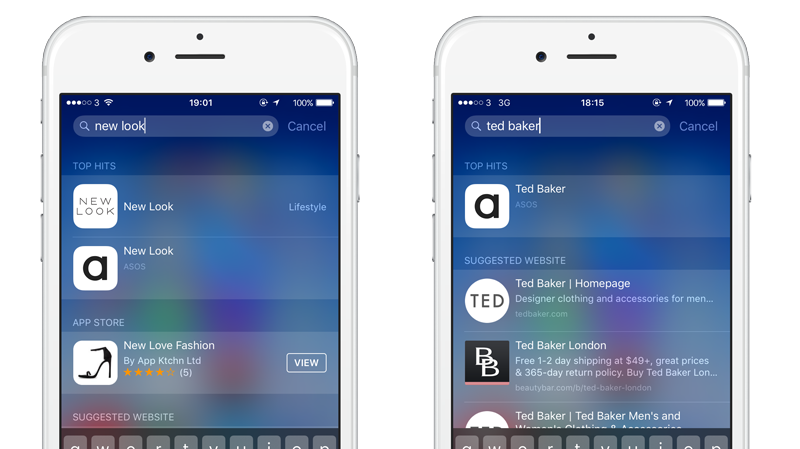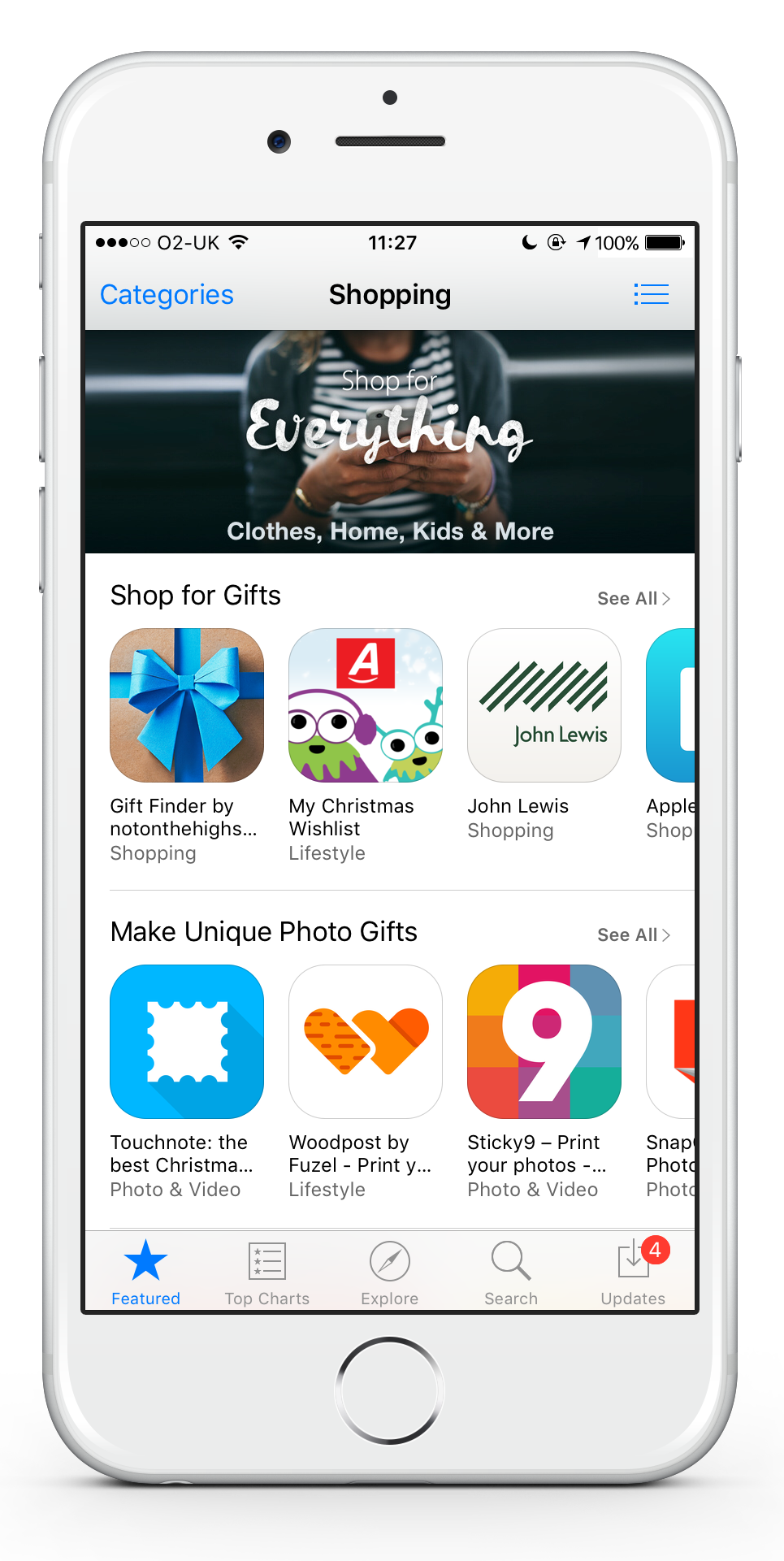6 app commerce highlights of 2015

We’d like to take you through the key events in app commerce that took place over the past 12 months. These are the six game-changers of 2015 that you should know about:
#Mobilegeddon
The world watched with bated breath as Google rolled out its new search algorithm in April. Consequently, traffic to non-mobile-friendly websites from Google decreased by 12% in the two months after. Mobilegeddon – as it became known – may have been hyped up, but it drove home the simple message that mobile is an absolute must for every website. This algorithm also started taking into account app content, with the use of app indexing.
Deep linking
Deep links enable retailers to send shoppers directly to specific content within the app, including search results for specific terms, specific product categories, bespoke app pages, wishlists and more. It is now also possible to create deferred deep links, which will send users to the app store page if they don’t have the app installed. Read more about this in our Autumn ’15 release.
Google app indexing and iOS Spotlight Search
App indexing allows Google to index apps just like it indexes websites, and it works together with deep links.
With the launch of iOS 9 in September, Spotlight Search started incorporating in-app content in search results. In-app search results are now being prioritised above web search results for all installed apps that support deep linking. This incentives customers to re-engage with their installed apps and reduces the need to shop on the mobile web.

For a list of different types of deep links, read the short outline in Marketing Land. Or for a more technical explanation, check out Google’s page on App Indexing.
Apple Pay
This was arguably the biggest revolution in mobile and in-app payments. After launching in the US in October 2014, Apple Pay came to the UK in July. Android Pay followed a little later, launching in the US in September 2015. The immense advantage of Apple Pay is that it can be integrated into apps, thereby making it possible for shoppers buy items with a touch of their fingerprint. This reportedly increases speed to check-out by 58%. Android Pay introduced in-app purchase capabilities in the US just yesterday.
The Shopping category

On November 5, Apple’s App Store launched the Shopping category. Before this category was established, retailers had to submit their shopping apps to the ‘Catalog’ and ‘Lifestyle’ categories. This meant that retail apps had to compete with a plethora of apps that are completely unrelated to shopping, including social media, dating and gaming apps.
With this new category, Apple acknowledged the growing importance of retail focused apps. Shoppers can now find the right apps faster and retailers can promote their shopping apps more efficiently.
Mobile dominance on Cyber Weekend
As many predicted, mobile traffic reigned supreme during peak trading (read a quick recap in Internet Retailing). There are various reasons why shoppers prefer mobile during the sales period, including easier and faster browsing and purchasing, and being able to shop from the comfort of your bed or during your commute.
Across the Poq platform, we saw some retailers achieve 60% higher conversion rates on their apps than on their desktop traffic! Read more about this in our Black Friday recap.
The bottom line
“All of the advances in mobile are foreshadowing the absolute dominance of smartphones for customer interaction,” observes our Founder, Michael Langguth. “What does that mean for retail? Ultimately, it is becoming easier and more appealing for shoppers to download and navigate between apps.
“Retailers that don’t offer an app will miss opportunities not just in SEO. Black Friday was just a taste of things to come: apps have proven that they can effectively drive online revenue, because they provide a better shopping experience. In 2016, apps will prove how they can drive revenue in-store by acting as a bridge between the online and physical retail worlds.”
Check out our most popular insights from 2015
The Poq app commerce report 2015
Why app shoppers don’t convert on Sundays & other insights from the Q1 platform report
4 app commerce facts by Andy Harding
Delivering high-performance retail apps: Webinar with House of Fraser
Why would shoppers download a retail app?


